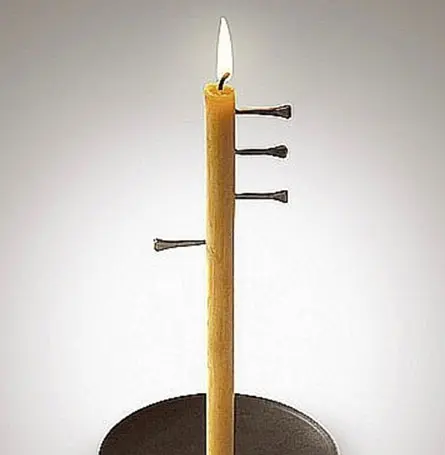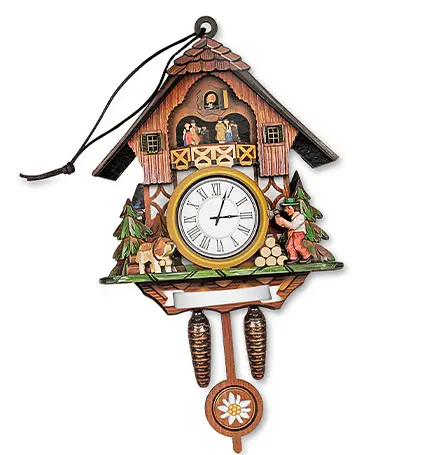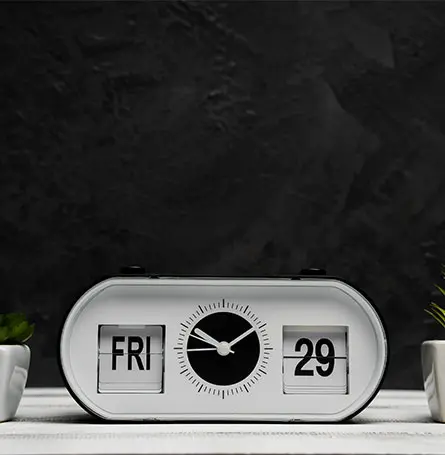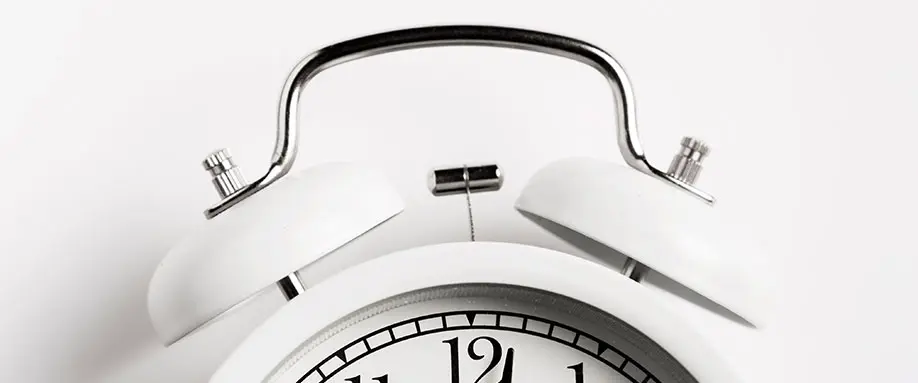The first American alarm clock
As we've mentioned, the most straightforward answer is that Levi Hutchins invented the alarm clock in 1787. It was constructed as part of a relatively chunky 74 cm × 36 cm wooden cabbinet and it rang every morning at 4 a.m. to wake Levi up.
So, considering it was roughly the size of modern clocks and it woke you up at a predetermined hour every morning, this could be called the first alarm clock. However, we weren't fully satisfied with that answer.
For one, the alarm clock only went off at 4 a.m. In this regard, it's not much different than a standard bell tower, which predated 1787. Well, at least if we discount the size.
However, we could also count coo-coo clocks in this department. Sure, they go off every hour but if they do manage to wake you up, don't they technically serve the same purpose as an alarm clock? Plus, coo-coo clocks also predate Levi's alarm clock (placed in the mid 1700s).
We also noticed that some pages cite Levi's invention as having happened in 1789 and not 1787. So, there are a few more things worth investigating here.
Bonus fact: Levi has gone on record that he has only once been in trouble, and that was when he accidentally stole clams while in the army.
Clocks throughout history
If we're not limiting ourselves to a mechanical alarm clock that you can personally adjust, quite a few inventions throughout history technically qualify. Well, some do more than others. From water clocks to giant clock towers, there were quite a few ways to make people wake up.
Here are just a few.
Plato's water clock (400 BCE)
Yep, we're starting all the way back in Ancient Greece. And that's because Plato did find a way to wake someone up on time. Although some sources said it was to wake himself up while others state it's to wake up one of his students early in the morning.
Either way, the Ancient Greeks could have a pseudo alarm clock by using water. The water clock functioned by having multiple pots atop each other, with strategic holes placed near the bottom. This would make it so that when the bottom of the funnel was reached, the water made a whistling noise.
So, while it wasn't as precise as later mechanical clocks, it certainly did its job. And the design would be improved a few hundred years later by an inventor called Ctesibius.
Candle alarms in China (6th century)

Why bother with a clock dial and all that other stuff when a simple candle can wake people up? Sure, a candle clock is not as fancy but it does get the job done.
All you have to do is place a nail in a candle and light the wick before going to bed.
The flame will need a certain amount of time to get to the nail and once that part of the candle has burned out, the nail will fall onto the plate underneath, creating a clang.
And if that isn't loud enough, you can hand a string that is connected to a cocked back arm. When the flame reaches the string, it burns up and allows the arm to hit a bell or something similar.
Sure, it's not the most precise alarm clock in the world, and you could potentially set something on fire, but we have to applaud the simple design philosophy.
Leonardo Da Vinci's alarm clock (end of the 15th century)
While we're sure no one is surprised that Da Vinci somehow made yet another invention, we found his approach to an alarm clock especially interesting. While he had made sand clocks and the like, it was his water clock that really caught our attention.
And that's because instead of making a sound of some kind, his alarm clock would trigger a chain of events that would fling his legs upwards. Given that the man only slept for 30 minutes every 3 and a half hours, we can't say we're surprised he went for such a radical approach to waking up.
The cuckoo clock – Franz Ketterer and Simon Dilger (1700s)

This is another case where we can't be sure what exactly happened.
Some sources state that either Franz Ketterer or Simon Dilger created the first cuckoo clock. While others claim that it was a combined effort of the two.
Either way, we know that the first cuckoo clock was created by Germany's Black Forest watchmaking business and that these two were involved in some manner.
The others
We could honestly be here all day if we went over all of the different inventions throughout history that served the same purpose as an alarm clock. From the combined effort of Yi Xing and Zhang Heng and the introduction of astronomical clocks to the lantern clocks that popped up in the UK, there's a lot.
And most of it is quite murky. For example, there was supposedly an adjustable mechanical alarm clock in the 15th century according to The Grove Encyclopedia of Decorative Arts but getting any concrete information proved a bit more difficult.
And there supposedly are alarm clocks from this period in existence in places like the Smithsonian. However, that's quite a drive. And if you really want to get into the weeds of clocks and their history, you can find quite the glossary here. It covers fascinating concepts such as a mystery clock as well as musical alarms!
Alarm clocks in the recent past
Of course, we don't exactly use candles, jugs of water, or feet-flinging boobytraps when we want to wake up in the modern day. And, as you can imagine, things generally picked up after the Industrial Revolution, with clocks and clock alarms becoming a lot more sophisticated.
In 1847, theFrench inventor Antoine Redier patented the first adjustable mechanical alarm clock, and in 1876 the Seth Thomas Clock Company patented one of the many small alarm clocks that would soon make our bedside tables their home.
And it only got more complicated from there.
The radio alarm clock. These clocks relied on specific radio wave frequencies in order to show the correct time. The first radio alarm clock was supposedly made by Heathkit. However, it's kind of confusing to say this with confidence, as a radio clock isn't the same as a clock radio.
A clock radio is just a radio that also serves as a clock. Okay, so who invented the clock radio? Well, our best guesses are James F. Reynolds and Paul L. Schroth Sr. However, if you read this article, you'll see that it's still inconclusive and other names have been thrown into the ring as well.
But if nothing else, at least radio clocks have stood the taste the time (to an extent), as you can still find articles about people's love of these things dating as recently as 2021.
Modern alarm clocks

Of course, most people these days can't imagine even having an actual alarm clock. Most of us just use an app and press that snooze button like our life depended on it. However, it's important to note how recent this was.
Like everything so far, it was hard to trace down which phone had an alarm function first. We've seen the model IBM Simon being tossed around but we couldn't find anything conclusive. But if true, this would place modern smartphone alarms in the late 90s!
To think that we went from that to now having advanced sleep trackers and special SAD lamps that counteract the winter's shorter day cycle. And all of that in just a few decades.
But personally, we're hoping we loop right back around to Da Vinci's fling system – because nothing can wake you up more quickly than that!
Conclusion
The timeline of when the alarm clock was invented is a bit convoluted. Many iterations of clocks have been created in the past 2000+ years and many of them could wake you up at a predetermined time. Historical records are murky, at least the ones we've found, and it's hard to get the exact names and dates.
However, what is certain is that alarm clocks have only gotten better. After all, Plato's clock definitely didn't have a snooze function. So, for the time being, we'll concede that Levi Hutchins invented the alarm clock and look forward to how alarm clocks will change in the coming years.













There are no comments yet
"*" indicates required fields